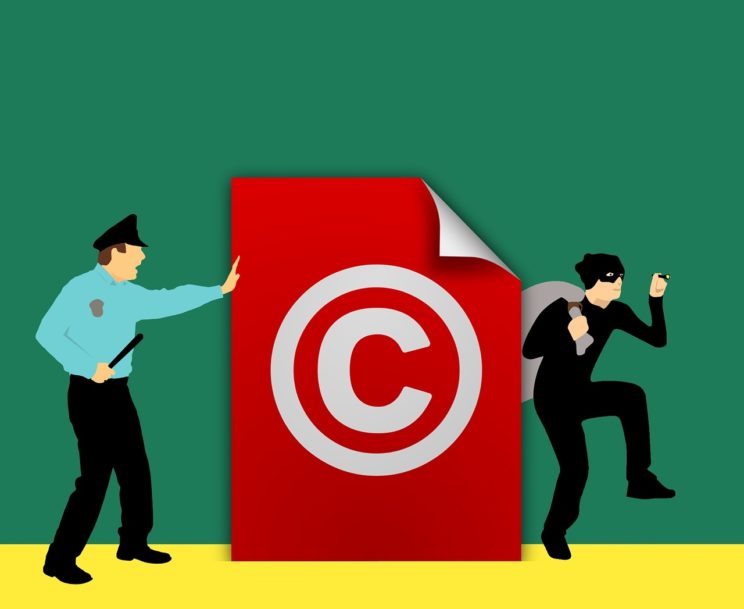The reason copyright registration exists is to establish a formal, verifiable record of the date of creation and the contents of a work, so that, in case of a lawsuit, infringement, or plagiarism, the copyright owner can point to an official government source. The idea is that having the government officially document and recognize your work will add legal credibility should the issue ever surface in court. However, helping to resolve legal disputes is just one reason why someone may want to copyright their work. There are many motivations one may have for it, but first, it’s a good idea to understand what exactly a copyright entails.
Copyrights Protect Intellectual Works
Copyrights protect intellectual works, both published and unpublished, tangible and intangible. Copyrights can be used to protect everything from literary works, to songs, to computer programs, to photographs and films. Because of how broadly copyrights can apply, it would be a nightmare to have to manually copyright every new creation or work. Fortunately, that no longer is the case. In most countries across the world, copyright gets granted automatically at the moment of ‘fixation’, or the moment in which the work is fixed in some tangible medium. This is largely thanks to the international Berne convention, which provides rights at a global level without a need for national registration. Therefore, it is also important to avoid confusing copyright registration with the mere granting of copyright. The granting of copyright happens automatically once a work undergoes ‘fixation’, while copyright registration is a formal process that must be completed by filing a request through your government.
The U.S. still does provide certain legal advantages for registering works of U.S. origin through the formal copyright registration process. For instance, having a registered copyright is still a prerequisite to filing an infringement lawsuit. Furthermore, other important remedies rely on prompt registration and verification, such as attorney fees and statutory damages. Therefore, for most people in the U.S. it is still extremely beneficial to have your work undergo the copyright registration. Also noteworthy to consider is that under U.S. copyright law, the protection that is granted to the owner of the work allows them exclusive rights to make and distribute copies of the work, to perform or display the work publicly, to produce derivative or iterative works such as translations, sequels, or adaptations, and to digitally transmit recordings of the copyrighted material.
Copyrights Can Be Bought, Sold, or Given Away to Others
Copyrights can be bought, sold, or given away to others. A transfer of copyright or an exclusive grant or license to utilize the work is possible only if it is conveyed in writing from the original owner of the copyrighted material. Also, copyrights do not protect the underlying ideas or concepts in the creator’s work. The legal terminology here gets a bit vague but basically ideas, facts, methods, titles, discoveries, works which do not have original authorship, and works with expired copyrights are not protected under U.S. copyright law. Bear in mind also that copyright law is intrinsically territorial and the information which we have talked about only applies to U.S. copyrights, which themselves are granted only to works of U.S. origin.
The final aspect of copyrights that we should discuss is their length, or period of effect. The law regarding the length of copyright says the following for:
-
- Works created after 1978 are protected for the lifetime of the author plus 70 years
-
- Works made for hire are protected for 95 years from publication or 120 years from creation, whichever comes first
-
- Joint works are protected for the lifetime of the last living author plus 70 years
- Anonymous or pseudonymous works are protected for 95 years after publication or 120 years after creation, whichever comes first
As previously mentioned, nearly all original works created after 1978 have some form of automatic copyright protection. To recap the important points, bear in mind that any original work automatically gets copyright protection once it is ‘fixed’, however, formally registering your copyright with the U.S. Copyrights Office still offers certain lucrative advantages, such as unlimited and exclusive control and ownership of the work, allowing for increased security and easier time dealing with any potential legal matters in the future, should the need ever arise.
Los Angeles Copyright Lawyers Can Help
At KAASS LAW, we believe in the spirit of genuine creativity. For that reason, protecting your original works is something we treat very seriously. If you or a loved one have created an original work, we invite you to call us at (310) 943-1171 to speak to one of our intellectual property lawyers today. Our team will ensure your works get registered with the U.S. Copyrights Office in the quickest and most efficient way possible so that you can keep creating beautiful works.
(310) 943-1171
Our lawyers in Glendale, Los Angeles, California, at KAASS LAW are authorized to practice law in California. The above content is intended for California residents only. This content provides only general information which may or may not reflect current legal developments. KAASS LAW expressly disclaims all liability in respect to actions taken or not taken based on any of the contents of this website. The above content DOES NOT create an attorney-client relationship. KAASS LAW does not represent you unless you have expressly retained KAASS LAW in person at the KAASS LAW office.


Pingback:Protection From Copyright Infringement | KAASS LAW
Pingback:Why Intellectual Property is Important for Business | KAASS LAW